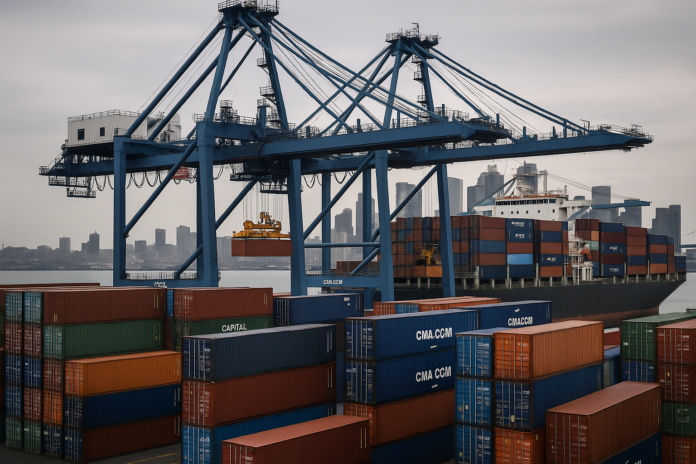
The United States doubled tariffs on imported steel and aluminum on June 4, raising them from 25% to 50%. The measure, announced by President Donald Trump, is aimed at protecting American metal producers and encouraging domestic sourcing. While intended to bolster U.S. industry, the decision has triggered concern among international partners and businesses that rely on imported materials.
The European Union’s chief trade official, Maroš Šefčovič, described ongoing trade talks with the U.S. as productive but expressed disappointment over the timing of the tariff increase. He emphasized that the EU faces similar issues with overcapacity and suggested the two sides should cooperate on structural solutions rather than escalate barriers.
Only the United Kingdom has been exempted from the new duties, following a preliminary trade agreement with the United States. UK officials say they expect tariffs on their steel exports to be dropped entirely within weeks. However, steel producers in countries like Germany and Austria warn that the higher tariffs may lead to lost contracts and shrinking margins, especially for specialty steel suppliers.
In the U.S., companies that depend on steel and aluminum inputs are already facing higher costs. Manufacturers producing cars, canned goods, and machinery say they will need to raise prices or absorb losses. Business owners in sectors like packaging and construction worry that more expensive materials may delay projects or force them to lay off workers.
Small and mid-sized firms are especially vulnerable. Some report having already raised their prices earlier this year due to previous tariff adjustments. The doubling of duties could force further increases, complicating relationships with customers and reducing competitiveness. Others fear that ongoing uncertainty in trade policy makes long-term planning more difficult.
Meanwhile, global supply chains are feeling additional pressure from unrelated trade restrictions. China’s recent move to limit exports of critical minerals, including rare earth elements used in electronics and automotive parts, has led to production stoppages in parts of Europe. Car manufacturers, including BMW, have acknowledged challenges in sourcing materials, though they say their main plants remain operational.
The U.S. government has asked other countries to submit proposals that could shield them from further tariff hikes expected in July. So far, only the UK has responded with a provisional agreement. European officials remain in negotiations, but no resolution has been reached.
Critics of the tariffs argue that while they may temporarily support domestic metal producers, they risk harming downstream industries and increasing consumer prices. Economists also warn that higher costs for inputs like steel could lead to job losses in sectors that rely heavily on global sourcing.
As global trade tensions continue to evolve, industry leaders and policymakers are watching closely. The coming weeks may prove crucial in determining whether dialogue prevails—or whether further economic disruptions lie ahead.
This image is the property of The New Dispatch LLC and is not licenseable for external use without explicit written permission.










